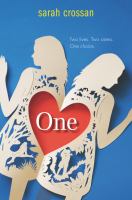BOOKS IN VERSE -- OR VERSE NOVELS
If I was truly creative, I would write this in verse. But - that's not going to happen. So I will just try to explain what this unit was about. I know that books written in poetic form have been around for thousands of years. One of my classmates made the argument that
The Iliad and
The Odyssey are, in fact, verse novels. Along with T. S. Eliot's
Old Possum's Book of Practical Cats. There are also those that call this a genre. And those that feel they should be shelved in the 811s with other poetry. But - I don't think so. I think that what we call verse novels today are different from those written a long time ago and that they aren't another genre - they are just another medium. And shelving them with the 811s would mean they would check out less, in my opinion. Sometimes, even if you build it - they don't come.
Anyway -- books in verse are somewhat popular right now. They offer writers a new avenue for characters to express themselves in a more personal and direct manner. As with other books, the perspective is sometimes one person, sometimes two and sometimes multiple. I like poetry and so it's not a surprise that I also enjoy books in verse. Occasionally. And this is what I read this week.
 One
One by Sarah Crossan is about conjoined twins - Tippi and Grace. They are joined right around their waist area -- they have separate upper torsos but share a bottom half. They each walk with a crutch for stability. Their parents were Alfred Hitchkock fans and that is, indeed, the source of their names. They also have a younger sister. There are a few problems at home - being conjoined is expensive - lots of medical bills. And their dad has been laid off. So the girls, who have always been homeschooled, are being sent to a private school because the state will pay for it. The book chronicles their experiences. It is told from Grace's perspective only. At first I wasn't sure about this one. But just after I finished reading it, the news feed was busy talking about conjoined 13-month-old twins in almost the same area where Tippi and Grace lived that had been separated. Only they were joined at the tops of their heads. They survived the surgery. It's all free verse - not rhyming. The chapters are short - and it's a quick read, but not necessarily an easy read. It does offer a glimpse into what most teens struggle with - to be different but to want to fit in; to have friends besides your sister; to maybe even fall in love. Try it - keep a few tissues handy.

The best book I read was
The Braid by Helen Frost. It was amazing. It is historical, set in the 1850s. The story starts in Scotland. Tenant farmers were evicted from their land because the owners discovered it was more lucrative to raise sheep than it was to pay farmers - so they forcibly removed them to new locations like American, Australia, and Canada.
The Braid is the story of two sisters - one who remains in Scotland; and one who makes the journey to Canada. One chapter is told from the perspective of Sarah; the next from the perspective of Jeannie. And there are eight-line praise poems that separate them. And each beginning line of the praise poem is a mixture of words that were in the last line of the previous poem. The whole book is meticulously woven together - fashioned after a Celtic knot - and amazingly beautiful. Sarah stays with her grandmother and lives on a small island where she catches sea birds and ekes out a living and falls in love. Jeannie on the other hand, must learn to make her way in Canada with just her mother and little brother. It's just a beautiful story about a fascinating slice of history that I had never heard of before. It makes me wonder if some of my own ancestors headed to America at the same time...
I also read
How I Discovered Poetry by Marilyn Nelson. This is one that sort of fits into the category but could also be in a poetry collection... though it does definitely tell a specific story. And it is part fiction and part memoir. Nelson based the poems on her memories of growing up and moving from base to base with her family. But she also admits that there are parts she could not remember so - she filled in as best she could. Each poem could stand alone - but together they do tell the story of growing up African American (her father was one of the first African American officers in the Air Force) and the both blatant and subtle racism they experienced plus the anxiety of the Cold War and the hope of the Civil Rights movement. Much of what she wrote about was familiar to me - either because it reminded me of my own experiences in the military or because it was a time frame I grew up in also.
All this to say - if you've never read a novel-in-verse, try one. I think you'll be pleasantly surprised!
No comments:
Post a Comment